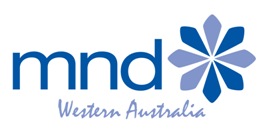Motor neurone disease (MND)
What is motor neurone disease?
Motor neurone disease (MND) is the name given to a group of diseases in which the nerve cells (neurones) degenerate and die.
Neurones control the muscles that enable you to:
- move
- speak
- breathe
- swallow.
Motor function is controlled by the upper motor neurones in the brain. These descend into the spinal cord and then activate lower motor neurones.
The lower motor neurones exit the spinal cord and directly activate the muscles. With no nerves to activate them, muscles gradually weaken and waste.
MND is also known as:
- amyotrophic lateral sclerosis (ALS) in many parts of the world
- Lou Gehrig's disease in the USA.
Who is at risk of MND?
Slightly more men than women are diagnosed with MND, most commonly in the 50 to 60 year age group. However, MND may be diagnosed in adults at any age.
Signs and symptoms
Symptoms and the rate of progression of MND vary significantly from person to person.
Early symptoms may be mild and may include:
- stumbling due to weakness of the leg muscles
- difficulty holding objects, caused by weakness of the hand muscles
- slurring of speech or swallowing difficulties due to weakness of the tongue and throat muscles
- cramps and muscle twitching.
As the disease progresses your symptoms may include:
- breathing difficulties from decreased lung capacity caused by muscle weakness
- fatigue caused by:
- muscle exhaustion
- metabolic changes
- weight loss and reduced food intake
- decreased lung capacity
- insomnia caused by:
- discomfort
- pain from stiff joints and muscles
- excessive saliva
- dry mouth
- breathing problems
- mild changes in cognitive skills and processes and/or behavioural change
- fronto-temporal cognitive changes (a type of dementia), which is prominent in 5 to 10 per cent of MND cases
- excessive laughing or crying due to damage to the upper motor neurones
- some pain or discomfort.
Diagnosis and tests
MND can be difficult to diagnose because the initial symptoms can be similar to many other conditions.
Neurologists will often use a series of tests to eliminate other conditions before making a definitive diagnosis of MND.
Tests may include:
- blood tests to look for a rise in your creatine kinase, an enzyme which is produced when muscle breaks down
- nerve conduction studies (NCS), which involves taping electrodes over your nerves and recording muscle activity when nerves are stimulated by electrical impulses
- electromyography (EMG), which involves inserting a needle electrode into your muscles to measure their electrical activity
- magnetic resonance imagery (MRI) scans, where you are placed in a cylinder-like machine that takes images of the internal structures of your body and can show up damaged areas.
Note: An MRI scan will not diagnose MND as the damage caused by this disease does not show up on this scan. However, it may be used to eliminate other conditions which can have similar symptoms to MND.
Treatment
At present there is no cure for MND. However, there are supports and therapies that can maintain quality of life and address many of the effects of MND.
These include:
- riluzole – this is the one approved drug therapy for MND in Australia and it can prolong the median survival by 2 to 3 months
- equipment that can promote your independence and comfort levels
- relaxation therapies to help relieve your anxiety and breathing difficulties
- gastrosotomy (PEG or RIG) – this enables tube feeding which supports adequate nutrition when your swallowing is impaired
- non-invasive ventilation which is often used when respiratory function is affected
- multi-disciplinary care – the involvement of a variety of health professionals can greatly enhance the care provided to you and your families. This team can include:
- GP
- neurologist
- respiratory specialist
- occupational therapist
- physiotherapist
- dietician
- speech pathologist
- community nurse
- social worker/psychologist/counsellor
- palliative care specialist
- MND Association advisor.
Where to get help
Remember
- Neurones control our muscles enabling us to move, speak, breathe and swallow.
- MND can be difficult to diagnose because the initial symptoms can be similar to many other conditions.
- At present there is no cure for MND.
This information is provided by

Acknowledgements
Motor Neurone Disease Association of Western Australia
This publication is provided for education and information purposes only. It is not a substitute for professional medical care. Information about a therapy, service, product or treatment does not imply endorsement and is not intended to replace advice from your healthcare professional. Readers should note that over time currency and completeness of the information may change. All users should seek advice from a qualified healthcare professional for a diagnosis and answers to their medical questions.